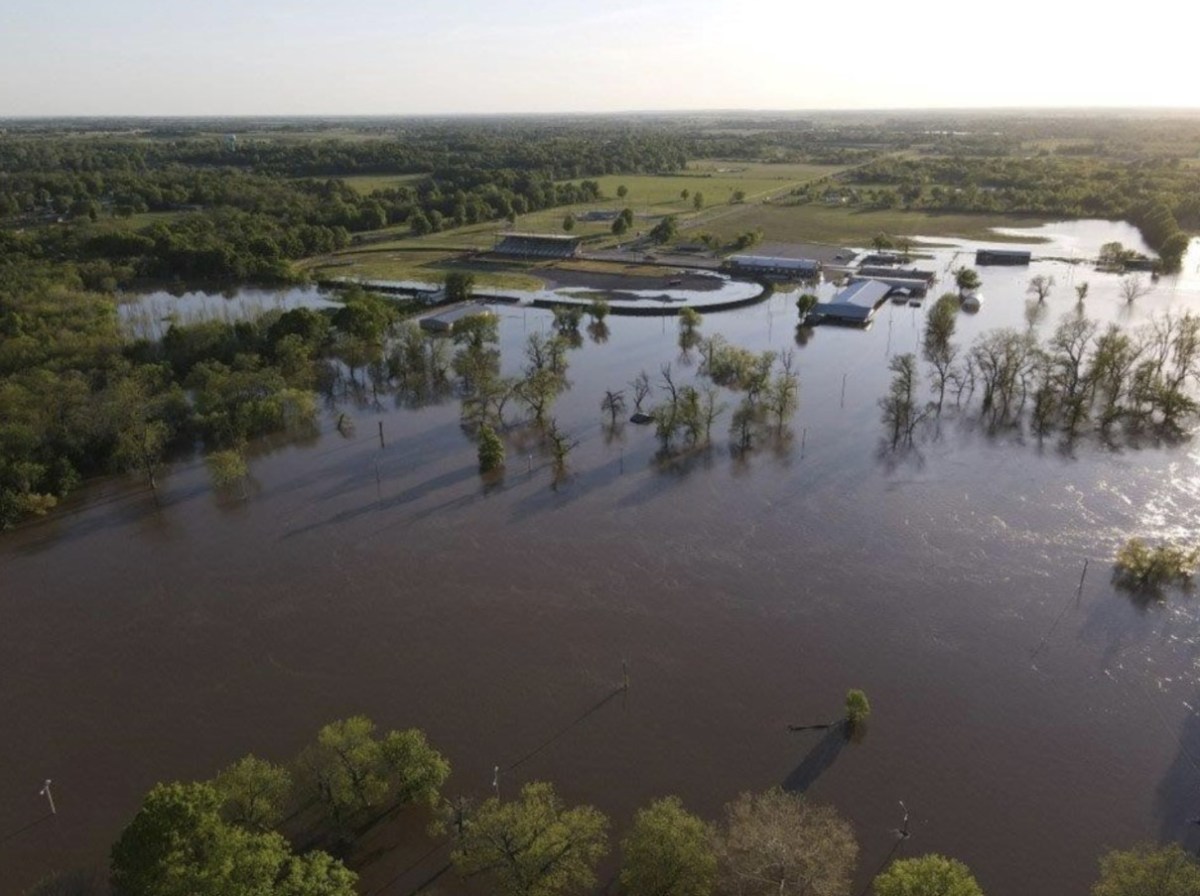
The Pensacola Dam is one of the major causes of flooding in the northeastern Oklahoma town of Miami and the Grand River Dam Authority has violated its license by not buying out affected property owners, according to a new federal ruling. The Federal Energy Regulatory Commission issued the order on Jan. 18.
The Pensacola Dam in Langley impounds Grand Lake downstream. What role the dam plays in Miami’s history of damaging floods has been the subject of a decades-long dispute between the town and the Grand River Dam Authority.
Melinda Stotts, spokeswoman for the City of Miami, said she and city officials are pleased with the federal order.
“It’s a big win for us,” Stotts said. “We haven’t won the war, but we have won a battle.”
The Grand River Dam Authority could still appeal the order. The agency is currently weighing its options, spokesman Justin Alberty said in a statement.
“The January 18, 2023, order by the Federal Energy Regulatory Commission (FERC) appears to change 85 years of legal precedence,” Alberty said. “If the federal government is committed to providing flood control measures, we believe they need to provide adequate easements.”
Sign up to get text alerts whenever we publish a new story
The federal order gives the Grand River Dam Authority 120 days to submit a report on flooding in the upper reaches of Grand Lake, an analysis of land upstream of the dam that is prone to flooding and whether the agency has property rights to those lands.
Then-Sen. Jim Inhofe authored legislation in 2019 that removed the Federal Energy Regulatory Commission’s authority to require the Grand River Dam Authority to purchase additional land affected by flooding. But the new ruling states that federal regulators still have authority to do so under the dam’s current license, which was issued in 1992.
The Grand River Dam Authority is a non-appropriated state agency established by the Oklahoma Legislature in 1935. It operates and oversees Grand Lake and the Pensacola Dam. The dam is currently undergoing relicensing through federal regulators, and the 1992 license remains in effect.
The Grand River Dam Authority has been party to numerous lawsuits since the early 90s by property owners in the Miami area who have been flooded. Experts hired by those property owners say that the dam causes a backwater effect in the upper extremities of Grand Lake, where the Neosho, Elk and Spring rivers converge.
In 2018, the City of Miami filed a complaint with the Federal Energy Regulatory Commission, claiming that the Pensacola Dam had caused repeated flooding on 13,000 acres outside the lake’s current project boundaries and failed to acquire easements for the flooded areas in violation of its license.

The Grand River Dam Authority claimed the dam did not have an impact on upstream flooding, and that the U.S. Army Corps of Engineers was responsible for all aspects of flood control, including purchasing land that might be flooded. The Corps of Engineers told the Federal Energy Regulatory Commission that while it is responsible for ordering releases from the Pensacola Dam during flood conditions, it falls to the Grand River Dam Authority to acquire lands around the lake impacted by flooding.
Federal regulators rejected the Grand River Dam Authority’s claim that it was not responsible for purchasing lands affected by flooding.
Miami Mayor Bless Parker called the federal order a “good win for our citizens,”
“I grew up in a home that flooded, and I understand the impact, and it’s about time somebody stood up to GRDA,” Parker said. “These facts matter, and this proves the fight for our city and its residents was worth the battle. It’s a huge victory for our citizens and our tribal partners that have suffered the continual flooding for close to 40 years. It’s nice to finally get some traction and to be heard at a federal level. We hope that we’ll get this same attention and support from our current and future state legislature.”



